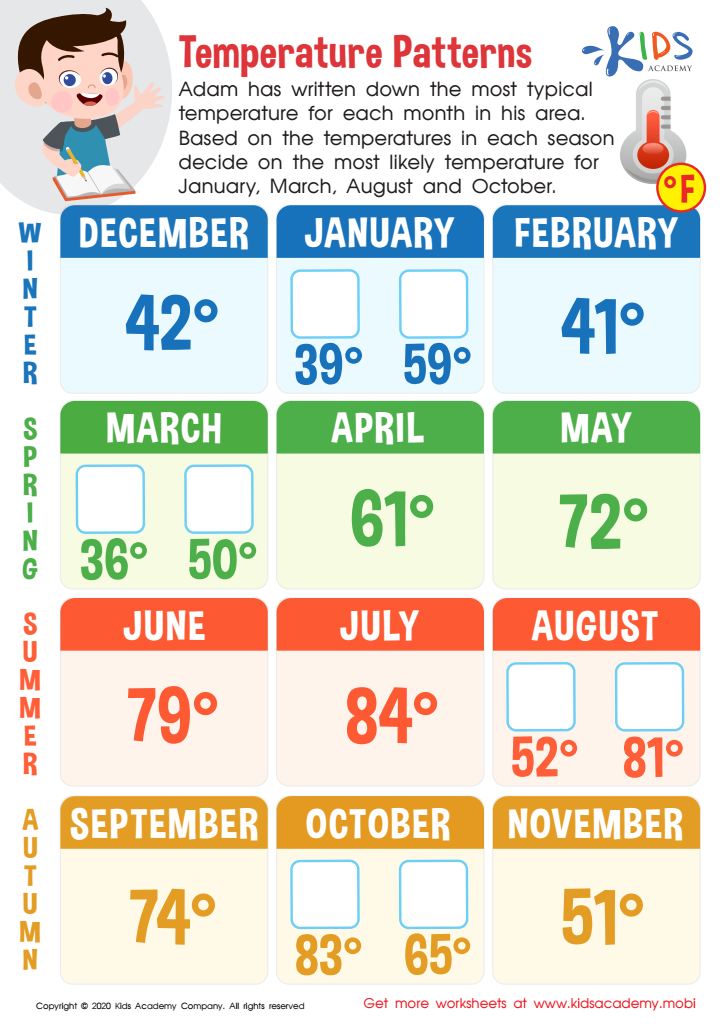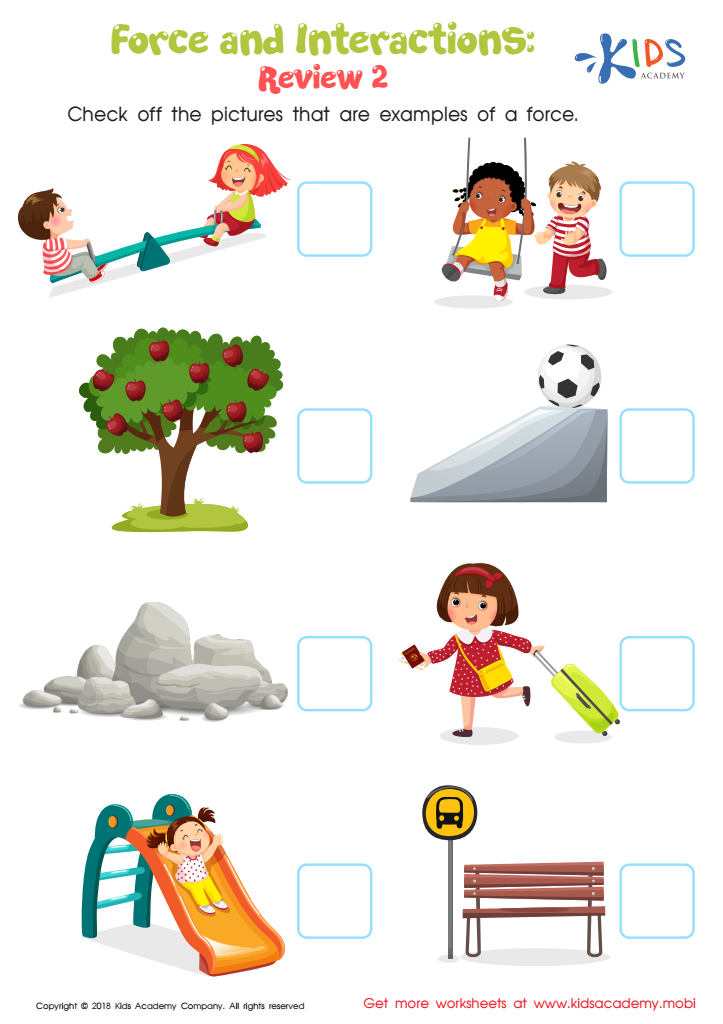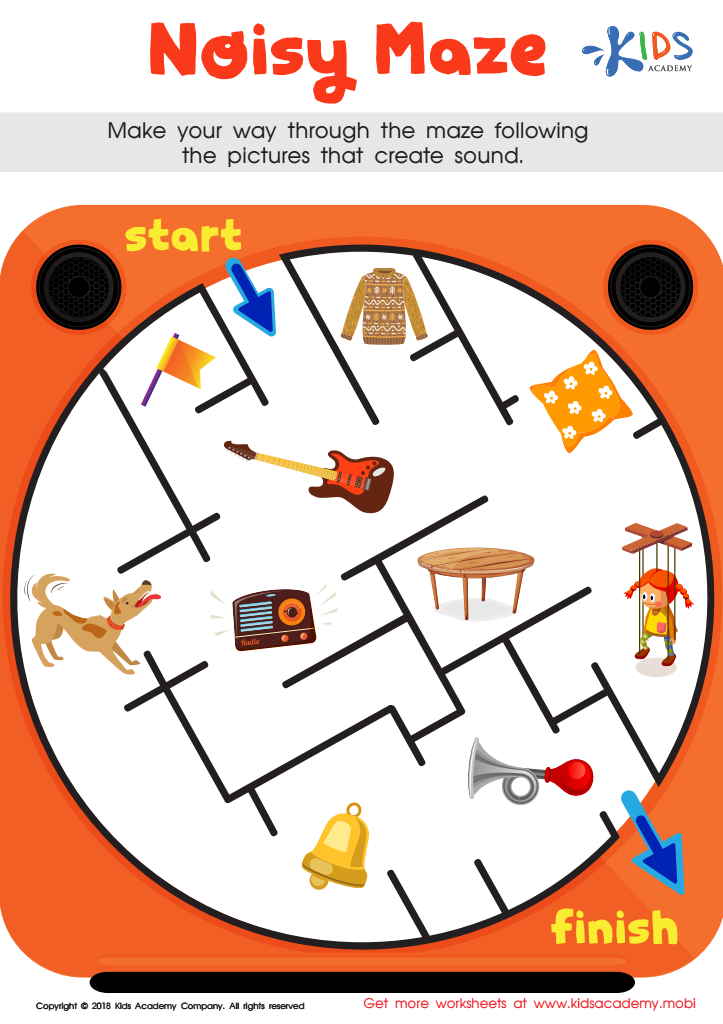Problem-Solving Skills Normal Physical Science Worksheets for Ages 3-6
3 filtered results
-
From - To
Enhance your child's learning journey with our engaging Problem-Solving Skills Normal Physical Science worksheets designed specifically for ages 3-6. These interactive resources foster critical thinking by presenting captivating challenges that encourage children to explore, analyze, and find solutions. Your little ones will enjoy activities centered around fundamental concepts of physical science, including force, motion, and simple experiments. Our user-friendly worksheets promote creativity and development while laying a solid foundation for future academic success. Perfect for both classroom and home settings, these worksheets inspire curiosity and a love for science in young learners. Start nurturing your child’s problem-solving abilities today!


Temperature Patterns Worksheet


Force and Interactions: Review 2 Worksheet


Noisy Maze Worksheet
Parents and teachers should prioritize problem-solving skills in young children, especially within the context of normal physical science, for several compelling reasons. First and foremost, developing problem-solving abilities at an early age fosters critical thinking. Children aged 3-6 are naturally curious, and engaging them in simple scientific concepts encourages them to ask questions, make predictions, and experiment. This foundational curiosity aids in the development of analytical skills that will greatly benefit them throughout their education.
Furthermore, by introducing problem-solving through physical science, children learn to observe and interpret the world around them. Activities such as sorting objects by weight or experimenting with simple machines empower children to explore cause-and-effect relationships. These experiences not only enhance their understanding of basic scientific principles but also provide a platform for collaborative learning, increasing social skills and teamwork.
Additionally, early mastery of problem-solving skills contributes to resilience and adaptability. Children who learn to navigate challenges develop a growth mindset, understanding that mistakes can lead to Learning. In summary, nurturing problem-solving skills in the context of normal physical science not only enriches a child's intellect and independence but also lays the groundwork for lifelong learning and adaptability in an ever-changing world.
 Assign to My Students
Assign to My Students















